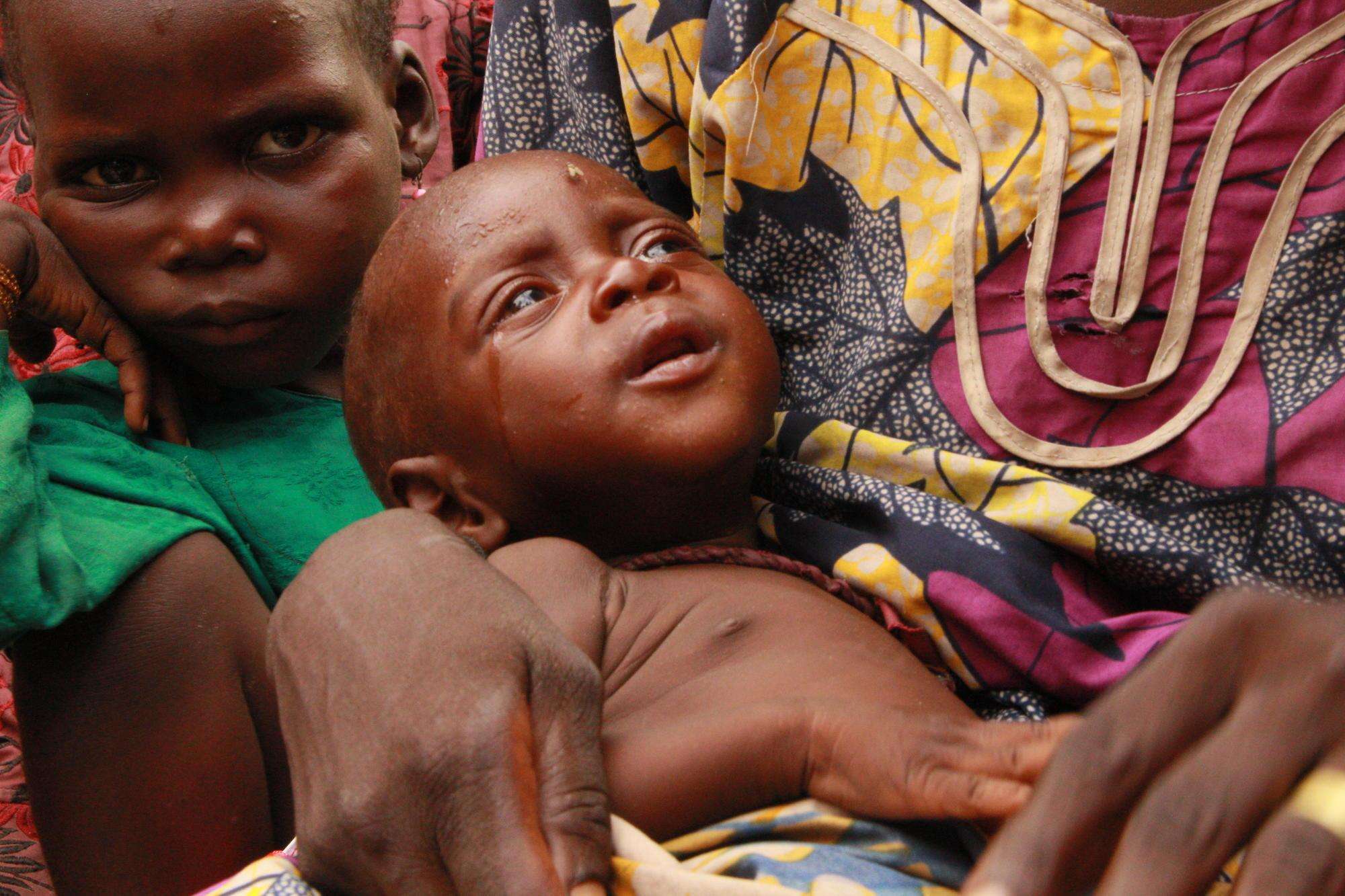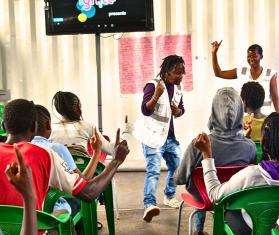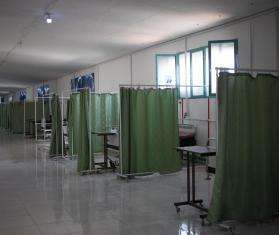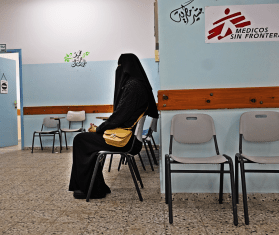NEW YORK/ABUJA, NIGERIA/PARIS, AUGUST 17, 2018—Children are dying at an alarming rate in an overcrowded camp for displaced people in Bama, northeastern Nigeria, the international medical humanitarian organization Doctors Without Borders/Médecins Sans Frontières (MSF) warned today, calling on the authorities to urgently address humanitarian needs before the situation deteriorates further.
MSF started emergency nutritional and pediatric medical services yesterday in Bama, as newly arrived MSF teams found that 33 young children died in the town's Government Science Secondary School camp from August 2 to 15, indicating a humanitarian emergency, given the camp's estimated population of 6,000 children under five years old.
The Government Science Secondary School camp received more than 10,000 displaced people since April, many of whom are in poor health after fleeing other areas of northeastern Nigeria amid fighting between government forces and armed groups. Intended for a maximum of 25,000 people, the camp exceeded its capacity at the end of July, without adequate shelter, water, and medical care.
"A lot of children are already in a critical state upon arrival, and poor assistance and access to health care further deteriorates their condition," said Katja Lorenz, MSF's representative in Abuja. "Despite the presence of government agencies and international humanitarian organizations in Bama, the health and nutrition situation has been allowed to deteriorate to the current crisis point. Measures must be urgently taken to avoid overcrowding and ensure dignified living conditions in the Government Science Secondary School camp. Secondary and emergency health care for both displaced people and the resident population must be scaled up as quickly as possible."
Many children in the camp are severely malnourished and suffer from medical complications urgently requiring intensive care and close medical follow-up, as the current rainy season typically sees a spike in the number of patients with malaria and diarrheal diseases.
The lack of an inpatient nutrition and pediatric health facility in Bama has been catastrophic for children. At present, the only hospital in Bama, Bama General Hospital, is not functional. Seriously ill children have to travel to the state capital, Maiduguri, for further treatment. However, many people in Bama cannot afford to pay for private transport, and even if they can, inpatient nutritional centers are overwhelmed in Maiduguri as well. While MSF was setting up an inpatient facility in Bama, MSF also referred 26 patients from Bama to MSF's pediatric hospital in Maiduguri.
On August 16, MSF launched inpatient services for severely malnourished children under five years old in a 30-bed medical facility in Bama, as well as pediatric care for patients under 15 years old with severe malaria and other diseases. This is only a short-term response to the critical humanitarian situation in Bama until the level of assistance is scaled up. MSF is calling on authorities to urgently address humanitarian needs before the situation deteriorates further.
"Well over 6,000 people in the camp currently sleep in the open with no protection from the heat, rains, and mosquitoes," Lorenz said. "People do not even have basic utensils to cook their dry food rations, and water is not available in adequate quantities to meet the minimum needs."
MSF has been present elsewhere in Borno State, northeastern Nigeria, since May 2014. Teams provide medical and humanitarian assistance to displaced people and the resident population in locations including Maiduguri, Pulka, Gwoza and Rann. In 2016, MSF teams also found a dire health and humanitarian situation among the resident population in Bama. MSF then called attention to this alarming situation and launched an emergency intervention.
Nigeria: Children dying in Bama as health crisis escalates
MSF launches emergency response to pediatric malnutrition and medical needs

NIGERIA 2018 © Nitin George/MSF



